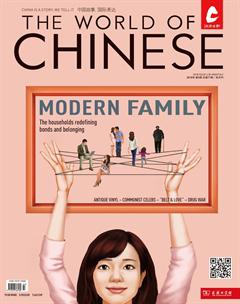BATTLE GROUNDS
HAN RUBO
Four months ago, it barely existed—today, it is bragging about taking over Starbuckss business in China, and publicly threatening a lawsuit against the Seattle-based chain over “monopolistic” business practices.
The remarkable rise of Luckin (Ruixing) Coffee is backed by deep VC pockets—over one billion RMB, according to CEO Jenny Qian—and an aggressive marketing and sales campaign straight out of Silicon Valleys playbook.
Over the last four months, Luckin has opened nearly 500 stores across China, from Tianjin and Beijing to Shanghai and Shenzhen. A recent WeChat essay described how 20 stores had sprung up in Shenzhen “almost overnight,” compared with bubble-tea brand Hey Teas “tortoise-like speed” of 10 stores per year. “As far as I know, no other brand has expanded their offline stores this fast,” the writer concluded.
Counting itself as part of Chinas “new retail” trend—think smartphones, automation, and data—many Luckin branches are delivery-only, accessible via its app and third-party food delivery services. It expands by rapidly taking over and rebranding non-chain beverage shops, then belatedly bringing them up to code. The chain is also investing in takeout kiosks in office lobbies, and several flagship and dine-in outlets, to build a diverse customer base—reportedly around at 1.3 million at the time of writing. By comparison, Starbucks serve six million customers a week from around 3,200 mainland shops, found in malls or commercial avenues.
Luckins overnight ubiquity is mainly due to an aggressive guerilla marketing strategy. Chances are, if youve used an office elevator, strolled the streets of a major Chinese city, or browse WeChat or Weibo lately, you have seen an ad for Luckin Coffee. To reach new customers, Luckin is offering free and discounted orders, and secured Chinese megastars Tang Wei and Zhang Zhen as brand ambassadors.
The company claims its customers are mostly young, internet-savvy urbanites attracted its advertising, cheaper prices, and flavors supposedly adapted to “Chinese tastes.” It also claims to use only fresh Arabica beans, blended by World Barista Champions, at an attractive price point: 20 to 30 RMB, 10 RMB less than at Starbucks and the British chain Costa Coffee. With 400 Chinese shops, Costa had planned to be Chinas second-largest coffee chain until Luckin arrived.
Although dismissed by Starbucks as another part of its “promotion hype,” Luckin also threatened a lawsuit against the coffee giant in a viral open letter in May, further raising both the stakes of the competition and Luckins profile. The recent “gig” wars —between Didi and Uber (ride-sharing); Mobike and ofo (bike-sharing); and Waimai and Meituan (food delivery)—have followed familiar patterns: VC cash chasing a zero-sum victory to the exclusion of profit, in order to win market share.
In the short-term, it is a major win for customers, and even employees: Luckin has apparently been offering baristas and other Starbucks staff several times their current pay to defect. It has also raised questions about Starbucks conduct in the Chinese market, from signing exclusive rights with property developers and storeowners to pressuring local suppliers of ingredients and equipment to work only with them.
In the long-term, though, a monopolistic hold on any market can be risky. Last year, Didi chased Uber off its turf with a billion-dollar deal. Now, the company is embroiled in numerous scandals involving passenger safety, particularly since the rape and murder of a flight attendant by her driver on Didis “Hitch” ride-share service in May.
Chinese brands like Luckin rely on home-grown advantages, but risk suffering from a domestic business environment that can emphasize corner-cutting, and non-compliance over customer care. If Luckin wins the brand battle over Starbucks, expect plenty of triumphalism—and not much mention of costs to consumers.

